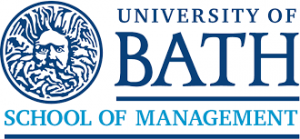Businesses that fail to monitor their outsourced recruitment could find themselves inadvertently employing victims of modern slavery, according to new research led by the University of Bath’s School of Management.
Interviews with businesses, non-governmental organisations (NGOs), trade unions, law firms and the police found that while companies can increasingly trace where their products come from, many are in the dark about the backgrounds of their staff. 
One CEO of a UK hotel chain told the researchers: “We have pretty much solved traceability of the food served in our restaurants. I can tell you the farm where the steak on your plate came from, probably even the name of the cow. But we have no idea where the workers came from that work in our kitchens.”
The research, conducted with the University of Sheffield, suggests that layers of outsourcing, subcontracting and informal hiring of temporary staff are to blame and that current models of social auditing used by most businesses are unfit for purpose in detecting and preventing modern slavery.
This, say the researchers, enables victims of slave labour to be hidden within the workforce of companies and organisations, even those with the best of intentions.
Statistics recently released by the National Crime Agency showed that the number of people reported as potential victims of slavery and human trafficking in the UK has more than doubled in the past three years, with 3,805 people referred for help in 2016.
The researchers concluded that the key issue in tackling modern slavery is understanding the labour supply chain – the often-unregulated networks through which contingent and sometimes forced or trafficked workers are recruited, transported, and supplied to business by third party agents.
Workers may well have been supplied by unscrupulous agents who subject workers to highly exploitative employment practices, such as withholding their passports, forcing them to work for little or no pay, threatening them or their families, or tricking them into racking up huge debts through deductions for accommodation, food, transport and other ‘services’. Some will even have paid to get the job in the first place.
Lead author Prof Andrew Crane, director of the university’s Centre for Business, Organisations and Society, said: “Companies have little hope of detecting modern slavery practices unless they adopt a new approach that focuses specifically on their labour supply chains – they need to be able to trace the origin of their employees in the same way as most now can for their products.
“Twenty years ago most high street retailers did not have a clue where the products they sold actually came from. Since then, there has been a revolution in responsible business practices and companies have invested millions of pounds to trace the source of their products and tackle the myriad sustainability issues they found there. To prevent the misery of modern slavery from blighting our workforces companies must apply that same focus to their staff.”
The study showed that most incidences of forced labour were several steps removed from the core workforce at the producer company. Within the agricultural sector these employees could potentially only be on site for a matter of days or weeks, making it difficult for producers to detect abuse.
The researchers say government needs to instigate better coordination between labour market enforcement and immigration law. Currently, immigration rules create vulnerabilities among migrants that can be exploited by traffickers in ways that are difficult to police with existing labour market enforcement practices.
The research, which received funding from the Joseph Rowntree Foundation, is published in Regulation & Governance, and is one of the first research studies to examine forced labour in companies based in the UK, focusing on the UK’s construction and food industries.
The University of Bath’s School of Management was ranked eighth in the UK for its research in the independently-assessed Research Excellence Framework. Some 89% of its submitted case studies were deemed to have an outstanding or very considerable impact.


















